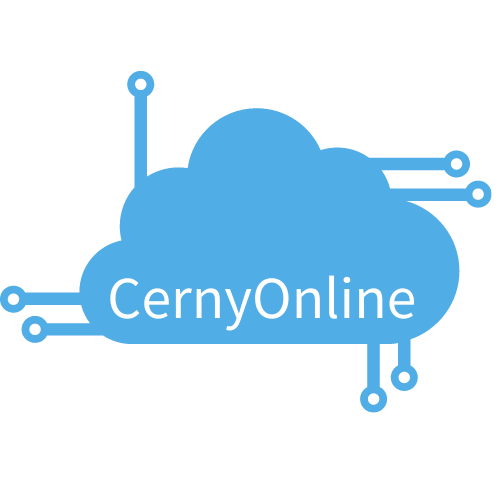Effective digital marketing strategies for online business growth
In today's rapidly evolving digital landscape, businesses are increasingly turning to online platforms to drive growth and expand their reach. Effective digital marketing strategies have become essential tools for companies looking to thrive in the competitive online marketplace. With the right approach, businesses can significantly enhance their visibility, attract more customers, and ultimately increase their revenue through strategic online initiatives.
Search engine optimisation fundamentals
The transition from traditional Business to Internet operations requires a solid foundation in search engine optimisation (SEO). This digital marketing pillar is crucial for ensuring your online business gains visibility where it matters most. Studies show that over 92% of online sales begin with a Google search, highlighting the critical importance of ranking well in search results. An effective SEO strategy serves as the backbone of digital growth, enabling businesses to connect with potential customers actively searching for their products or services.
Keyword research and implementation
Developing a robust keyword strategy is the cornerstone of successful SEO implementation. This process involves identifying the specific terms and phrases your target audience uses when searching for products or services related to your business. Rather than randomly selecting keywords, successful digital marketers conduct thorough research to understand search intent, competition levels, and potential traffic values. The integration of these keywords must feel natural within your content strategy, avoiding the outdated practice of keyword stuffing that can trigger search engine penalties. Instead, focus on creating valuable content that addresses customer needs while naturally incorporating relevant terms that improve your website optimisation efforts.
Technical seo and site structure
Beyond content considerations, technical SEO elements significantly impact your digital marketing effectiveness. Website loading speed is particularly crucial, with research indicating that pages taking longer than two seconds to load experience dramatically higher bounce rates. Your site structure should facilitate easy navigation for both users and search engine crawlers, with clear hierarchies and logical internal linking. Mobile responsiveness has become non-negotiable in the current digital landscape, as Google now predominantly uses mobile-first indexing. Regular technical audits can identify issues like broken links, duplicate content, and missing meta tags that might be hampering your online visibility and conversion rate.
Social media marketing tactics
 Social media platforms have transformed from simple communication channels into powerful marketing strategy hubs. For businesses seeking digital transformation, these platforms offer unprecedented opportunities to build brand development, engage directly with customers, and drive targeted traffic to their websites. The RACE framework highlights social media as a crucial component across all stages of the customer journey, from initial awareness through to post-purchase engagement. Effective social media marketing requires more than simply posting content; it demands a strategic approach that aligns with broader business growth objectives.
Social media platforms have transformed from simple communication channels into powerful marketing strategy hubs. For businesses seeking digital transformation, these platforms offer unprecedented opportunities to build brand development, engage directly with customers, and drive targeted traffic to their websites. The RACE framework highlights social media as a crucial component across all stages of the customer journey, from initial awareness through to post-purchase engagement. Effective social media marketing requires more than simply posting content; it demands a strategic approach that aligns with broader business growth objectives.
Platform selection and audience targeting
Not all social media platforms will deliver equal value for your marketing strategy. Each platform attracts distinct demographics and supports different content formats, making strategic selection essential for maximising return on investment. Rather than spreading resources thinly across numerous networks, successful digital marketers identify where their target audience spends time and focus their efforts accordingly. This targeted approach enhances customer experience by meeting potential clients where they already engage. Analytics tools can provide valuable insights into audience demographics and behaviour, allowing for increasingly refined targeting as your strategy evolves. The most effective campaigns leverage platform-specific features while maintaining consistent brand messaging across all channels.
Content creation and engagement strategies
Creating compelling content that resonates with your audience is fundamental to social media success. This content should reflect your brand's personality while providing genuine value to followers. Visual elements like infographics, which can be created using accessible tools such as Canva, typically generate higher engagement than text-only posts. Video content has also emerged as a particularly effective format, with numerous free and low-cost production tools now available. Beyond creation, engagement strategies should focus on building community through meaningful interactions rather than broadcasting messages. Responding promptly to comments, asking questions, and encouraging user-generated content all contribute to stronger relationships with your audience. These engagement tactics support lead generation efforts by nurturing potential customers through the decision-making process.
Implementing email marketing as part of your digital PR strategy offers an affordable yet powerful way to nurture leads and encourage repeat business. With proper segmentation and personalisation, email campaigns can deliver highly relevant content to subscribers based on their previous interactions with your brand. This direct communication channel complements broader digital marketing efforts by providing opportunities for remarketing to individuals who have already demonstrated interest in your offerings. When combined with analytics to track performance, email marketing becomes an increasingly refined tool for driving business growth and improving customer lifetime value.


